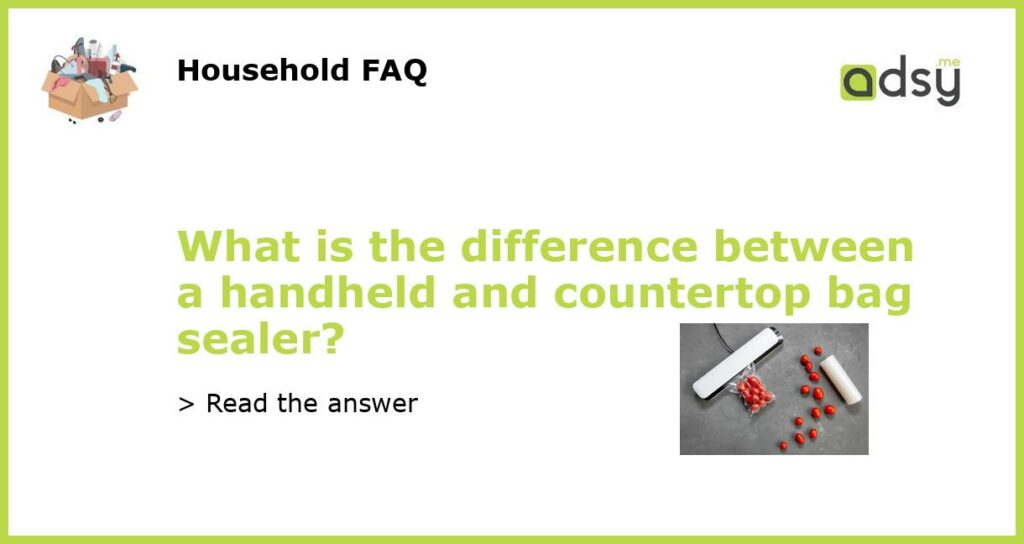The Basics: What Are Handheld and Countertop Bag Sealers?
Before diving into the differences between the two, it’s important to understand what handheld and countertop bag sealers are. Both are devices used to seal plastic bags for food storage or packaging purposes. The main difference is in their size and how they are operated.
A handheld bag sealer is typically a small, portable device that can be held in one hand. It is used by running the sealer across the top of the bag, pressing down to create a seal. Countertop bag sealers, on the other hand, are larger devices that are meant to be placed on a flat surface. Typically, the user inserts the open end of the bag into the sealer, which then creates a seal through a heat or adhesive process.
Portability vs. Efficiency: Which Is Better?
The first major difference between handheld and countertop bag sealers is their portability. Handheld bag sealers are smaller and more portable, making them ideal for use in a variety of locations. They can easily be used on-the-go or in locations where space is limited. Countertop bag sealers, however, are less portable but more efficient when it comes to sealing large quantities of bags. They are best suited for use in a commercial or industrial setting.
Sealing Capability: Can They Both Handle All Materials?
Another important difference between handheld and countertop bag sealers is the materials they can handle. Handheld bag sealers are typically designed to handle thinner, lighter-weight bags made of materials like plastic or Mylar. Countertop sealers, on the other hand, can handle thicker, heavier bags made of materials like foil or polypropylene. They are also able to create a stronger, more secure seal than their handheld counterparts.
Price and Maintenance: Which Is the More Cost-Effective Option?
When it comes to price and maintenance, there are pros and cons to both handheld and countertop bag sealers. Handheld bag sealers are typically less expensive than their larger counterparts, making them a more accessible option for personal or small-scale use. They also require less maintenance, as they are typically battery-operated and do not have heating elements that can wear out over time. Countertop bag sealers, while more expensive initially, can be a more cost-effective option in the long run if they are used frequently and properly maintained.
The Bottom Line: Which Is Right for You?
Ultimately, the choice between a handheld and countertop bag sealer depends on your individual needs and preferences. Handheld bag sealers are ideal for small-scale or personal use, while countertop sealers are more suited for commercial or industrial use. If you need to seal thicker, heavier materials or seal large quantities of bags at once, a countertop sealer is likely the better option. If you need a more portable, accessible option and do not plan on sealing bags too frequently, a handheld sealer may be the way to go.






